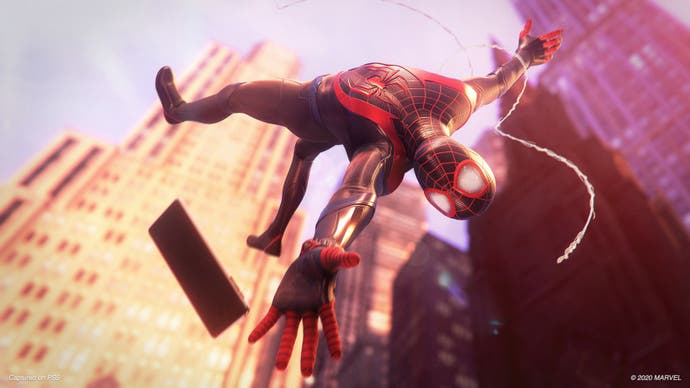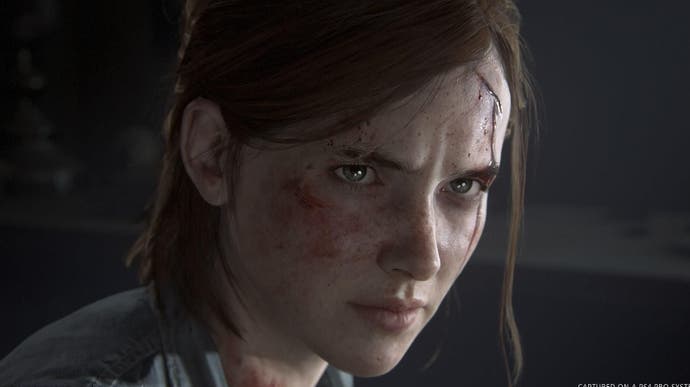Players without sight can Platinum The Last of Us Part 2 - a look back at accessibility in 2020
From Miles Morales to The Game Awards.
2020. What a year? Nobody had 20/20 vision of our future, as reality transformed into a game and games stepped up to help us deal with that reality. That's true next-gen immersion.
Let me take you on an investigative journey backwards through 2020 using my trusty game accessibility magnifier lens. 2020 was undoubtedly the greatest year for the gaming accessibility community since the release of the Xbox Adaptive Controller in 2018.
The Last Of Us Part 2 was an utterly ground-breaking game on multiple levels: it solidified the foundation for accessibility whilst raising the bar for future game developers to build upon. Naughty Dog illustrated that consulting with accessibility specialists with various disabilities throughout development is indeed possible and worthwhile. It also emphatically proved that games with accessibility features can and will sell. Players without sight were able to get the Platinum trophy, which is down to revolutionary accessibility features like high contrast mode, a narrator and multiple audio cues. The button remapping was one of the best yet seen as it utilised the PS4 touchpad, which potentially removed the need for stick clicks. I found the option to activate slow-motion whilst aiming invaluable, as it meant that I had enough time to be a precise headshot machine. This feature should be available in all future shooters
We must be realistic though as we can't expect all games to have the same level of accessibility and we can't compare future games to TLOU2. Accessibility isn't a competition between developers, but a collaborative and supportive endeavour needed for the gaming industry to progress.
Elsewhere! Spider-Man: Miles Morales by Insomniac games had an amazing and emotional narrative with some killer tracks. And Miles Morales was also a surprising accessibility triumph. The previous game was spectacular, however the controls were difficult to use especially during fast-paced combat. Insomniac fixed all these accessibility issues without dramatically changing the control scheme, but by offering intuitive accessibility settings. The remapping allowed you to change button layouts, but it also showed how the remapping would affect actions that require multiple presses. An example: Web Burst automatically fired 3 webs to stick enemies to the environment instead of needing you to press L1 three times. Insomniac added toggles for aiming, Venom powers and web-swinging. These options are energy-saving so gameplay isn't such a physical effort.

Ubisoft released 3 games with great accessibility features in 2020: Watch Dogs Legion, Assassin's Creed Valhalla and Immortals Fenix Rising. However, I will focus here on Assassin's Creed Valhalla. This game brought me back to loving the Assassin's Creed franchise. The revolutionary accessibility feature in Valhalla was the ability to auto-ride to an objective or follow a mission character, which eliminated the need to control your horse or Viking Longship for prolonged periods with a single press of a button. This also appeared as auto-drive in Watch Dogs Legion.
Accessibility advances didn't just come from the blockbuster games but also from small but mighty indie games. Hades by Supergiant games didn't just have a beautiful art style, a humorous narrative and engaging combat. Supergiant also listened to player feedback regarding accessibility improvements. The developer decided to add God Mode, a setting which makes Zagreus more powerful every time he dies. It's a simple solution which doesn't alter gameplay but cleverly uses the constant variable of character death as an accessibility feature. No wonder Eurogamer chose Hades as its GOTY.
Moving on, Grounded, by Obsidian Games dealt with arachnophobia by giving gamers complete control over the look of spiders in the game. Arachnophobia Safe Mode allowed you to adjust the look or sound of spiders by removing distinctive spider characteristics, so they are less triggering. It's one of the first games to consider psychological accessibility, which is rarely discussed. Why couldn't Alien: Isolation have had the same option to make Xenomorphs look less like a Xenomorph? Those things are terrifying but are a masterclass in creature design.
HyperDot by Charles McGregor is a challenging one-button action-arcade game with one rule: dodge everything. You can use any type of controller to enjoy playing HyperDot. HyperDot revolutionised accessibility research by partnering with disabled content creators to stream the game and provide instant feedback to identify relevant updates. And HyperDot proves that accessibility and difficulty aren't mutually exclusive - they have a beneficial relationship without ruining the intended experience.
I can't talk about 2020 without mentioning next-generation consoles: the PS5 and Xbox Series X/S. Disabled gamers were apprehensive about next-generation accessibility at the beginning of the year due to the lack of information regarding the DualSense controller's adaptive triggers. Happily, Sony revealed that both adaptive triggers and haptic feedback could be adjusted or completely turned off, which is crucial for gamers with severe motor disabilities or muscle weakness. Meanwhile, the Xbox Series X/S supported accessibility by allowing gamers to either use the new Xbox Series X controller or the older controller with their current Xbox Adaptive Controller. This is crucial for disabled gamers like me, because discovering a setup that works with limited abilities requires time and effort, so changing it is not simple and easy. To put it simply, you must think outside the box to find a setup while your abilities are inside the box.
But the greatest end to 2020 was with The Game Awards introducing the Innovation in Accessibility category. Geoff Keighley approached accessibility specialists with different disabilities to be judges on the panel. The judges included Sightless Kombat, an accessibility consultant and gamer without sight, Steve Saylor, an accessibility advocate without sight, the whole team at the Game Accessibility Nexus review website, led by Antonio I. Martinez and Morgan Baker, an accessibility specialist with a focus on deaf/hard of hearing accessibility. A few of the judges worked on TLOU2, so couldn't select it - however, Naughty Dog's game deservedly won the Innovation in Accessibility category anyway. The delight didn't stop there as TLOU2 won Game of the Year too - a game with accessibility at the core finally being recognised by the whole gaming community.
The Game Awards illustrated that accessibility is here to stay, and I cannot wait to see what 2021 brings.


















